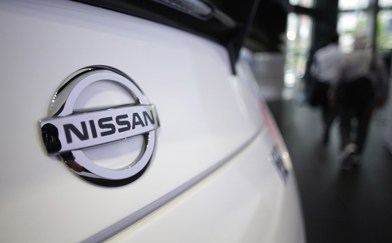If you've bought a new or used EV, the second-most common habit behind driving it, is charging it. With the convenience of recharging at home and overnight and cost-saving, it's little wonder 82 per cent of charging is done privately, mostly at home.
For the majority of the shorter, daily sub-30km trips Kiwis take, a portable three-pin wall socket charger is perfectly adequate, when used at home or on the road, hotels or friends' houses: easy and convenient, if not quick. Typically, with home appliances also running overnight, and depending on the vehicle's state of charge, it takes around 8 hours to input around 50-80km.

Does a hybrid need a home charger?
No, a hybrid electric vehicle, such as a RAV4, Honda Jazz e:HEV or even a Nissan e-Power's batteries and EV system are all self-contained and self-charging while driving. Some hybrids can run on EV power alone for very short distances - from a few metres to a few kilometres - but a hybrid simply does not plug in to charge.
Does a PHEV need a home charger?
Yes and no. To get the best from a PHEV and realise the cost-savings offered by the dual motor set-up (fitted with both ICE and EV), the PHEV uses a plug to recharge its onboard battery, which offers EV range anywhere from 30-100km. Once the battery is depleted, it instantly switches over to the ICE, and acts as a hybrid, though it's less-effective than either the PHEV and hybrid set-ups.
A portable three-pin charger is perfectly suitable for a PHEV, with an overnight charge offering a flat-to-full battery. Where a PHEV performs less effectively is when the battery is depleted, and there isn't enough time to recharge before its next use. This is where the changeover point to a wall-mounted 7.4kW charger starts to make sense, such as those from Kiwi company Evnex, via Z Energy, or other brands such as Wallbox and Chargemaster. A home AC wall-mounted charger will typically recharge a car's battery 4-6 times faster than the portable three-pin charger, meaning it'll be back to full within two hours or less, making it very handy between morning sports or cafe runs, and the afternoon and/or evening events.

Does my EV need a home charger?
A battery electric vehicle does not "need" a home charger, depending on its use. Depending on its battery size, range and daily use, a three-pin charger could be suitable, but, like a PHEV, there will be times when the added speed of a wall-mounted charger makes good sense, particularly with a larger battery that requires substantially more time to charge.
Can I get cheaper power at home?
There are increasing numbers of Kiwi energy providers who offer EV charging solutions. The Z EV at Home plan includes three hours free charging from 3am-6am and half-price rates from 9pm-7am (with typical terms & conditions), while others like Genesis and Meridian also offer half-price rates from 9pm-7am. Smart chargers like those from Evnex, Wallbox and Chargemaster allow time programming to take advantage of off-peak rates. Some EVs also feature programmable charging schedules.
How fast are public EV chargers?
The public EV charging infrastructure in New Zealand is already good and getting better. With more than 300 chargers nationwide, the likes of Z Energy's public charging network, ChargeNet, WEL Networks/We.EV and more offer a vast network of fast and ultra-fast chargers across sites as varied as petrol stations, tourist areas, supermarkets and stop-points. These can often highlight how quickly a specific vehicle can accept charge, with the NZ public chargers offering up to 300kW, though few cars able to accept that rate. But that's a whole different story.






